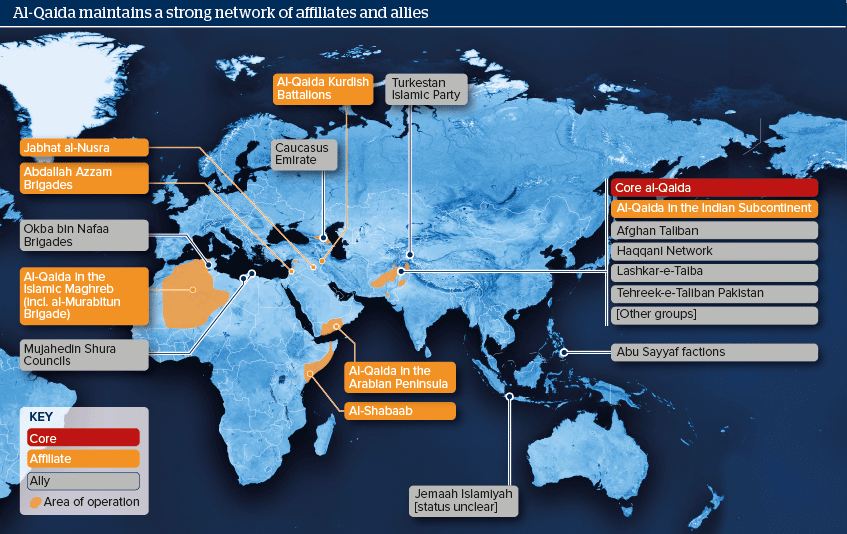Al-Qaida is still a potent global force
The terrorist network has retained the allegiance of many regional groups

Source: American Enterprise Institute, Institute for the Study of War, Rand Corporation, Oxford Analytica
Outlook
The Islamic State group (ISG)'s declaration of a caliphate in 2014 and its rivalry with al-Qaida has shaken the jihadi-salafist landscape. Many groups previously affiliated with al-Qaida broke off to join ISG. Others splintered, with some factions allying themselves with ISG and others remaining part of the al-Qaida network. The Philippine Abu Sayyaf group operates as such a collection of factions, of which several have pledged allegiance to ISG.
Animosity between some ISG and al-Qaida-linked groups is so deep that there is intense fighting. In Libya, the al-Qaida-affiliated Mujahedin Shura Council expelled ISG from Derna.
Among other groups, use of terrorist networks' names is opportunistic, which means that cooperation is possible. In the January 2015 France attacks, Amedy Coulibaly claimed his attack on behalf of ISG, while the Kouachi brothers claimed their attack against Charlie Hebdo in al-Qaida's name.
Impacts
- Al-Qaida core's ability to communicate with and direct its affiliates is likely constrained.
- However, the extended network is autonomous and can -- and will -- carry out operations independently.
- Al-Qaida in the Arabian Peninsula (AQAP) has exhibited the most intent and capability to carry out attacks in the West.
- Syrian affiliate Jabhat al-Nusra could expand as a result of ISG's setbacks.
- Al-Qaida in the Islamic Maghreb (AQIM) is spreading its attacks further than ever before, into West Africa.
See also
- Al-Qaida will be poised to attract IS supporters - Nov 14, 2017
- Somalia's political transition risks destabilisation - Jun 22, 2016
- Kenya's new mining law could grow the nascent sector - Jun 13, 2016
- Islamist threat to spread to new areas in West Africa - Mar 30, 2016
- More graphic analysis